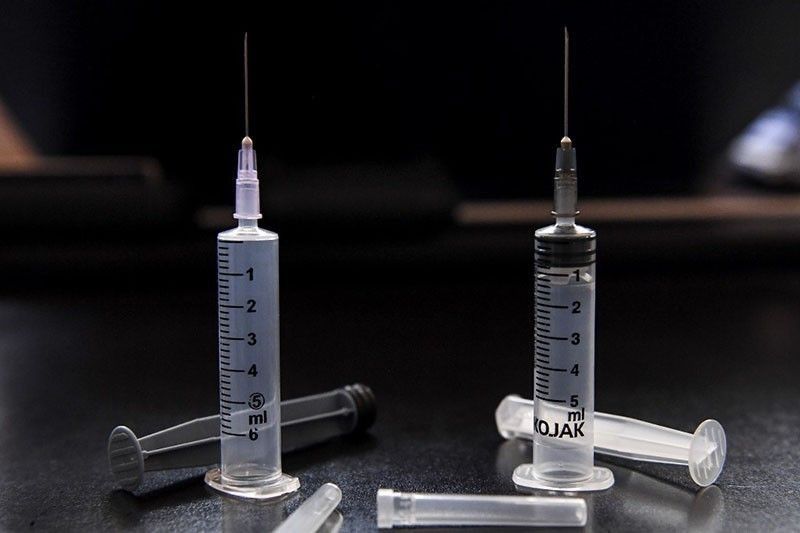Vaccine production to get tax perks

MANILA, Philippines — Vaccine production and development are among the high-value industries qualified for tax incentives for the longest period under the Corporate Recovery and Tax Incentives for Enterprises (CREATE) Law.
This developed as the Fiscal Incentives Review Board (FIRB) adopted during its second meeting last week a framework that lines up industries qualified to get incentives under the law.
Under the board’s Strategic Investment Priorities Plan framework, these industries, segregated into three tiers, are high-value and labor-intensive investments that can create more jobs and increase the country’s competitiveness in the global market.
In line with the goal of the law to rationalize the grant of fiscal incentives, the menu and length of incentives to be offered to investors will depend on their tier classification, the Department of Finance said.
Tier 3, which comprises sectors “critical to the structural transformation and industrial revolution of the economy,” will receive the longest period of incentives.
These sectors are those engaged in research and development that yield high-value added results and higher productivity; breakthroughs in health and science; generation of new knowledge; commercialization of patents, industrial designs, copyrights and utility models, and highly technical manufacturing.
Examples of these are vaccine development and production; manufacture of 3D printers, drones, robots, electrical vehicles, plug-in hybrid electrical vehicles, and optical image devices; establishment of smart factories and smart cities, and predictive agriculture.
Also covered by Tier 3 are the introduction of new products that embed new technologies, adoption of innovative processes using industry 4.0 technologies such as Artificial Intelligence, Machine Learning and the Internet of Things.
Several private businesses in the country are eyeing to locally manufacture vaccines in partnership with biopharmaceutical giants as the government forges through its vaccination program and positions funds for the purchase of booster shots for next year.
The SIPP framework was drafted by the Department of Trade and Industry (DTI)-Board of Investments in accordance with the three-tier structure for incentives provided for in the CREATE law.
With the framework in place, Finance Secretary Carlos Dominguez III asked the DTI to identify at least two leading companies in each industry tier and determine what incentives should be offered to them to encourage them to invest in the country.
Investment promotion agencies will be transformed into marketing arms instead of just processing agencies for investment applications.
Under the SIPP, Tier 1 covers investments with high potential for job creation, value creation and provision of essential support to sectors critical to industrial development, as well as emerging industries with potential comparative advantage.
These include modern agriculture and food processing; agricultural production using modern technologies; design-focused industries such as furniture, games and toys, jewelry and garments; energy efficiency and environment-friendly activities; health and medical products; industrial parks; and ports, airports and seaports.
Tier 2, meawhile, includes the manufacture of supplies, parts and components not produced in the country to encourage import substitution and address gaps in the domestic supply/value chain.
These include the production of iron, steel and non-ferrous metals, copper rods, plastics and synthetics in primary form, basic chemicals and pharmaceuticals. Likewise the production of fiber optic cables, refined petroleum, semiconductor devices and other electrical components, and machinery and equipment.
During its second meeting, the FIRB also approved Dominguez’s recommendation to let the board approve tax incentives for all investments amounting to over P1 billion per venture until the end of 2022.
After this period, the approval of incentives for investments of more than P1 billion but not more than P3 billion per venture will be delegated to the FIRB Technical Committee chaired by Finance Undersecretary Antonette Tionko of revenue operations.
The FIRB also approved during the meeting a proposal by Budget Secretary Wendel Avisado to put in place an appeals process for investment projects disapproved by the Technical Committee.
It also approved key features of the online Fiscal Incentives Registration and Monitoring System (FIRMS) for investors applying for incentives, with some modifications to ensure that the process would be fully compliant with the provisions of the Ease of Doing Business Law.
FIRMS would be set up to make it easy for potential investors to apply and track the progress of their applications.
The board also approved the proposal allowing the Technical Committee to recommend policies for the development and expansion of the domestic supply chain in order to reduce dependence on imports, promote diversification, raise the quality of locally consumed and exported products, and place-specific SIPPs during periods of recovery from calamities and post-conflict situations.
The FIRB, chaired by Dominguez and co-chaired by Trade Secretary Ramon Lopez, is tasked to determine the target performance metrics as conditions for enterprises to avail of tax incentives; and conduct regular monitoring and evaluation of investment and non-investment tax incentives, such as cost-benefit analysis to determine their impact on the economy and whether agreed performance targets are met.
It is also responsible for reviewing the compliance of other government agencies administering tax incentives, with respect to the administration and grant of such tax perks.
- Latest
- Trending






























